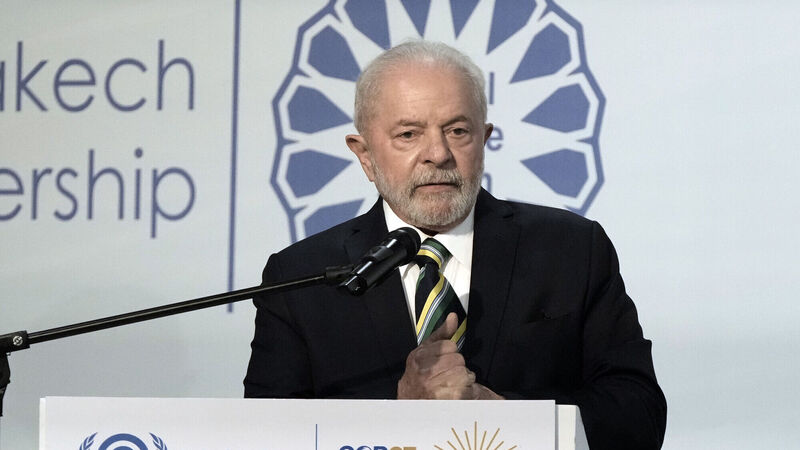Fears Cop27 could end without progress as key issues remain unresolved

Brazilian president-elect Luiz Inacio Lula da Silva, speaks at the Cop27 UN Climate Summit on Wednesday in Sharm el-Sheikh, Egypt. Picture: AP Photo/Nariman El-Mofty
There are real fears the two-week Cop27 climate summit could end without any real progress as a number of key issues remain unresolved.
Leaders from the host country conceded that time is running out to secure deals before the event in Sharm-el-Sheikh winds down this weekend.
CLIMATE & SUSTAINABILITY HUB













